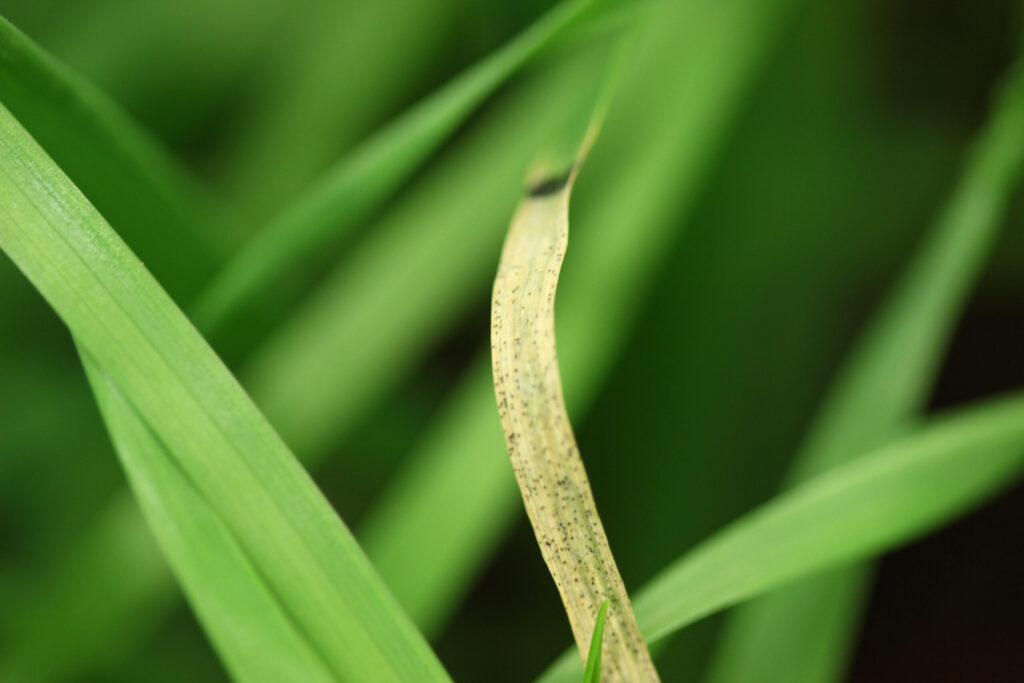Professor Margaret McFall-Ngai awarded with Kiel Möbius Prize
CRC 1182 honours renowned symbiosis researcher for her pioneering work on the relationships between microorganisms and multicellular host organisms
Last Friday, 6th December, the Collaborative Research Center (CRC) 1182 “Origin and Function of Metaorganisms” at Kiel University awarded the Karl August Möbius Fellowship to Professor Margaret McFall-Ngai from the California Institute of Technology (Caltech). The microbiologist is honoured with the Kiel science prize, endowed with 10,000 euros, for her outstanding research achievements and her merits in shaping a new field of science: her fundamental discoveries about the interaction between microorganisms and multicellular host organisms are considered pioneering achievements that paved the way for modern symbiosis research. McFall-Ngai accepted the award from CRC 1182 spokesperson Professor Hinrich Schulenburg at a scientific symposium at Kiel University.
Pioneer of symbiosis research
Over the course of a career spanning more than four decades, Margaret McFall-Ngai made a decisive contribution to recognising the importance of microorganisms as indispensable symbionts of their host organisms. She was one of the first researchers to succeed in characterising the fundamental influence of animal microbiomes on numerous life processes of the host and to expand the view of the microbial world, which until then had been reduced primarily to its harmfulness, to include its actual significance.
Her discoveries included evidence that bacterial symbionts can influence the development of the host animal and also control its circadian rhythm. She also discovered the biophysical means by which host organisms regulate the colonisation of the microorganisms living on them. In her current research, McFall-Ngai is investigating the mechanisms used by host organisms to recognise beneficial or harmful microorganisms. As part of the symposium entitled ‘How to Distinguish Friend from Foe’, members of the Kiel Collaborative Research Center also presented their work on this topic alongside the prize-winner.
“Without Margaret McFall-Ngai’s example, research into host-microbe interactions as a determining factor in health and disease, which is central to today’s life sciences, would be inconceivable,” emphasised Schulenburg. “She is also closely associated with Kiel University as a long-standing partner and advisor and, with her impulses, has contributed substantially not least to the establishment of our Collaborative Research Center. We are very grateful to Margaret McFall-Ngai for this constant and valuable commitment and are delighted to be able to honour her today with our most important award,” continued the head of the CRC
1182.
Renowned award winners
By receiving the Möbius Fellowship, McFall-Ngai becomes part of a community of internationally renowned scientists who have been honoured with this award by the Kiel CRC 1182 since 2016. These include Professor Angela Douglas from Cornell University, Professor Martin Blaser from Rutgers University, Professor Rob Knight from the University of California, San Diego and Professor Nancy Moran from the University of Texas, Austin. With their science prize, the members of the Kiel Collaborative Research Centre not only honour particularly deserving representatives of their field of research, but would also like to contribute in this way to raising public awareness of the central importance of the interaction between host organisms and microorganisms for health and disease.
About the eponym Karl August Möbius:
In the second half of the 19th century, the zoologist and ecologist discovered the concept of biocoenosis in Kiel, which is the interdependence of different organisms within an ecosystem. Today’s metaorganism researchers in Kiel and their partners around the world are continuing the research direction pioneered by Möbius by further developing the concept of multi-organismic relationships and its significance for the health and disease of humans, animals and plants.
Images are available for download:
https://www.uni-kiel.de/de/pressemitteilungen/2024/212-moebius-mcfall-group.jpg
Caption: Prof. Margaret McFall-Ngai is awarded the Möbius Fellowship 2024 for her pioneering work in symbiosis research, pictured with Prof. Hinrich Schulenburg and Prof. Tal Dagan (right), spokesperson and vice-spokesperson of the CRC 1182.
© Christian Urban, Kiel University
https://www.uni-kiel.de/de/pressemitteilungen/2024/212-moebius-mcfall-certificate.jpg
Caption: Margaret McFall-Ngai accepts the 10,000 Euro Science Award of the Collaborative Research Center ‘Origin and Function of Metaorganisms’ from Hinrich Schulenburg.
© Christian Urban, Kiel University
https://www.uni-kiel.de/de/pressemitteilungen/2024/212-moebius-mcfall-talk.jpg
Caption: At the award ceremony in Kiel, McFall-Ngai presented her current work on the mechanisms used by host organisms to distinguish between beneficial and harmful microorganisms.
© Christian Urban, Kiel University
https://www.uni-kiel.de/de/pressemitteilungen/2024/212-moebius-mcfall-moebius.jpg
Caption: The CRC 1182’s main science award is named after the ecologist and zoologist Professor Karl-August Möbius, who coined the term biocenosis in Kiel in the 19th century and thus laid the foundation for modern symbiosis research.
© Christian Urban, Kiel University
Contact:
Prof. Hinrich Schulenburg
Spokesperson CRC 1182 “Origin and Function of Metaorganisms”, Kiel University Phone: +49 431-880-4141
Email: hschulenburg@zoologie.uni-kiel.de
More information:
Prof. Margaret McFall-Ngai, California Institute of Technology (Caltech):
https://www.bbe.caltech.edu/people/margaret-j-mcfall-ngai














